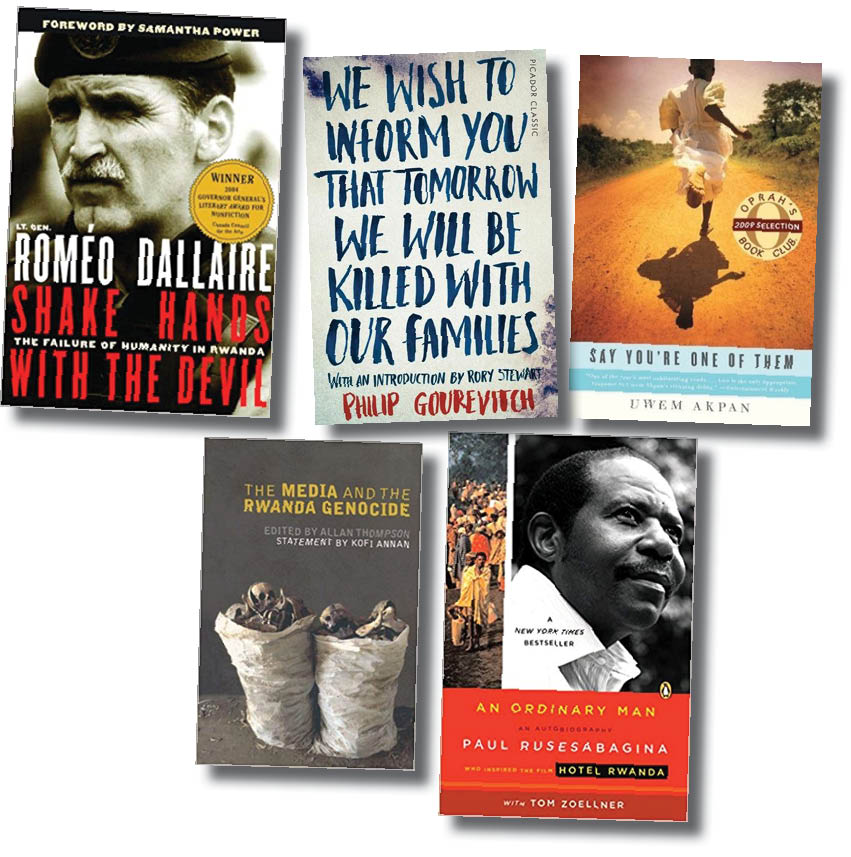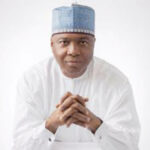When the Rwandan tragedy was afoot, where were you? I remember exactly what I was doing 25 years ago, when the bodies began to float up the river on international TV channels with tales unbelievable and terror unheard of in a long time. It was difficult to believe, 800,000 persons murdered by their kith and kin, some buried alive, some hacked to death by neighbours and parents made to kill their children to save themselves from the dagger. If you were a Hutu man who married a Tutsi woman, you were given a choice by the Hutu militia to kill your wife and your children to save your own life. The atrocities were unspeakable, unbelievable. A couple of years ago, my husband visited Rwanda and came back with a story that was stranger than fiction. He told me that everyone in Rwanda speak the same language. It was just a group that were separated by Belgian administration as more negroid in features while the other ones were less so. So they were divided along those lines and the more Hispanic looking ones with long noses were Tutsis and the ones more African looking were Hutus. Also they were separated based on what their occupation was, the Tutsis were herdsmen and the Hutus were farmers. Ridiculous. Same language? I could not believe it. Colonialism played a major part in dividing them across looks and occupation. The same people with the same language built so much hatred in their hearts that 800,000 Tutsis died within a hundred days using lo-tech methods, crude instruments of death particularly machetes and achieved this number of deaths with such speed. Unimaginable!
Then there was the media part which escalated and fuelled the tragedy. Citizens to be killed were referred to as cockroaches, how they should be killed was announced on the radio and where they were hiding was given out. The power of the media cannot be overemphasised. A sad and saddening affair. More than any other time, the role of the media in keeping the peace and not inciting people to violence should be on the front burner in Nigeria and other African countries as Rwanda remembers. Ethics, professionalism, balance and never resort to abusive language in the media and therein lies the challenge of social media where trolls and hate speech are commonplace. There must be some kind of peer review or internal regulation. There must be laws to protect the vulnerable online and laws to deal with anyone who through reposts and retweets or even their own posts caused deaths, tragedies and physical and emotional harm. So many in Rwanda are still emotionally traumatised, from those who killed five persons to those who lost whole families. It never really goes away.
Nigeria is too big and too populated and no one should wish Rwanda on any nation. It is a pogrom that the world will never forget and everyone pretended that it was not happening. The world turned its back on humanity. As we remember the dead, let us remember that we all have a responsibility to protect humanity, in whatever profession we are in, whether you are a government official, in the media or a politician. It is time to be responsible, reflect and sober up.
Here are five books in remembrance.
- Shake Hands with the devil, the failure of humanity in Rwanda written by Lt. General Romeo Dellaire of the Canadian forces with help from Major Brent Beardsley is an award winning book that gives a first-hand account of the genocide from a man who should know. Lt. General Dellaire was the leader of the UN peacekeeping mission in Rwanda. This award winning book which is now a movie, is majorly about the killings, how he lost his own men to the genocide, the senselessness of it all, betrayal, naiveté, racism and international politics. The things he saw were so bad that he suffered a mental breakdown when he returned home. This is a must read.
- We wish to inform you that tomorrow we will be killed by our families by Philip Gourevitch. I must have read this book four times while I was reading voraciously anything on the Rwandan genocide, just trying to make sense of the tragedy. Philip’s book is an unforgettable first hand account of the Rwandan genocide and its aftermath. As a journalist he brings his keen eye to even the smallest and often ignored details in the history of the genocide and spent time investigating the aftermath. He chronicles what happened and how people remember what happened. A Tutsi pastor in a letter to his church President who is a Hutu used the chilling phrase that gives Gurevitch his book title. With keen dramatic intensity, he frames the genocide and the horror of Rwanda’s “genocidal logic” in the anguish of its aftermath. Mass displacements, the temptation to revenge, quest for justice and the impossibly crowded refugee camps. The book shows the stubbornness of the human spirit in the face of extremism. Unputdownable!
- Say you are one of them, by Uwem Akpan is a fictional account of the Rwandan Genocide. Told through the eyes of a little girl, this Oprah endorsed collection of short stories tells the story of a Rwandan family where the man was given an ultimatum by his Hutu brothers to kill his wife and children or be killed because he married a Tutsi. The short story Say you are one of them which is the book’s title is a heart breaking story of love and betrayal as the genocide was raging. Unbelievable!
- The Media and the Rwandan Genocide Edited by Allan Thompson with a statement by former UN Secretary General, Kofi Annan. This book examines the role the news media played in fuelling the genocide and the failure of the international media in bringing the genocidal issues to the world’s attention properly. This is the first book to examine the power of the media and its role in the cataclysmic events in Rwanda where local radio and print media encouraged neighbours to turn against each other and International Media looked the other way.
- An Ordinary Man, autobiography by Paul Rusesabagina. This is the account of the amazing life of the man who inspired the film, Hotel Rwanda. A hotel manager, he turned the luxurious Hotel Milles Collines into a refugee camp for more than 1,200 Tutsis and moderate Hutus fending off the would be killers with a combination of deception and diplomacy. This is the story of his childhood, a recount of those terrible 100 days and his accidental path to heroism. He also tells how he subsequently left Rwanda living his life as a refugee and activist. An amazing read.
Bonus book:
Led by Faith, rising from the ashes of the Rwandan genocide by Immaculee llibagiza. Here the author tells the story of her miraculous escape from the genocide and how she lost family and friends and a million of her fellow citizens. By the same author, The Rosary, the prayer that saved my life.

 Join Daily Trust WhatsApp Community For Quick Access To News and Happenings Around You.
Join Daily Trust WhatsApp Community For Quick Access To News and Happenings Around You.


